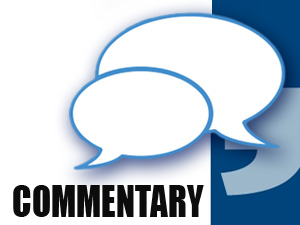Commentary of "Telemedicine in Developing Countries"
Main Article Content
Abstract
by Scott Korotkin • Telemedicine is an important aspect of medical care that is only going to continue to grow, both in usage and importance. In terms of evaluating telemedicine ethically, I think the two most important principles to consider are beneficence and nonmaleficence. I agree that the major argument for beneficence is improved access to healthcare in remote areas. I do have some concerns, however, about potential harms. Telemedicine is difficult for diagnosing because a physician does not have any way of physically examining the patient. This is not a problem for radiologists who only need the MRI or X-ray to examine, but I imagine it can be difficult for primary physicians to diagnose conditions remotely. For this reason, I think that potential misdiagnoses need to be considered as potential harms to the patient.
Madeline Goldberg mentions using telemedicine as a secondary confirmation for healthcare workers or physicians in remote or developing countries. This can be a useful tool, but once again, practicing good telemedical primary care is going to be dependent on the individual assisting the physician who is not physically there. In weighing these arguments, I think that the improved access to medical care is more important, but practically there are other barriers, as mentioned, that are going to hinder acceptance and application. Goldberg did an excellent job in identifying barriers to telemedicine and I agree that cost of treatment and liability are the two main issues that need to be addressed. I liked the idea of medical students helping with diagnosing, but once again I foresee the difficulties in diagnosing without physically being there. Experience might help reduce the number of misdiagnosis. I imagine that organizations like Doctors Without Borders would be able to help answer or figure out solutions to questions about liability and getting physicians involved. They are things that I am sure they deal with already.
Telemedicine is able to improve efficiency and possibly the diagnosis of patients in developing nations, as Goldberg points out. With increased collaboration and communication between doctors and specialists world-wide, physicians in developing nations can gain confidence in their diagnostic ability, thus benefiting patients and appealing to the principle of beneficence. It will also create a more just global society in terms of access to health care, as correctly mentioned by Goldberg, since patients in developing nations can, in a way, have contact with the minds and opinions of distinguished physicians and specialists around the world.
A thought that may be worth pondering, however, is how patients in developing nations would realistically react when they find out that physicians can now diagnose from a distance. Currently, my relatives in Indonesia will only obtain medical care in Singapore due to their distrust of physicians practicing in Indonesia. Although it is possible that they would be more willing to seek health care in Indonesia if telemedicine was implemented, in reality, they are more likely to request Singaporean physicians to practice medicine from a distance (at least until procedures such as surgery must be done, at which point they will travel to Singapore). The result would then be a decrease in patients going to local physicians. This would impede the goal of improving self-sufficiency and diagnostic confidence of local health care workers. The development of a regulation to ensure this doesn’t occur must be thought of before telemedicine is implemented in developing nations.
Article Details

This work is licensed under a Creative Commons Attribution 4.0 International License.

